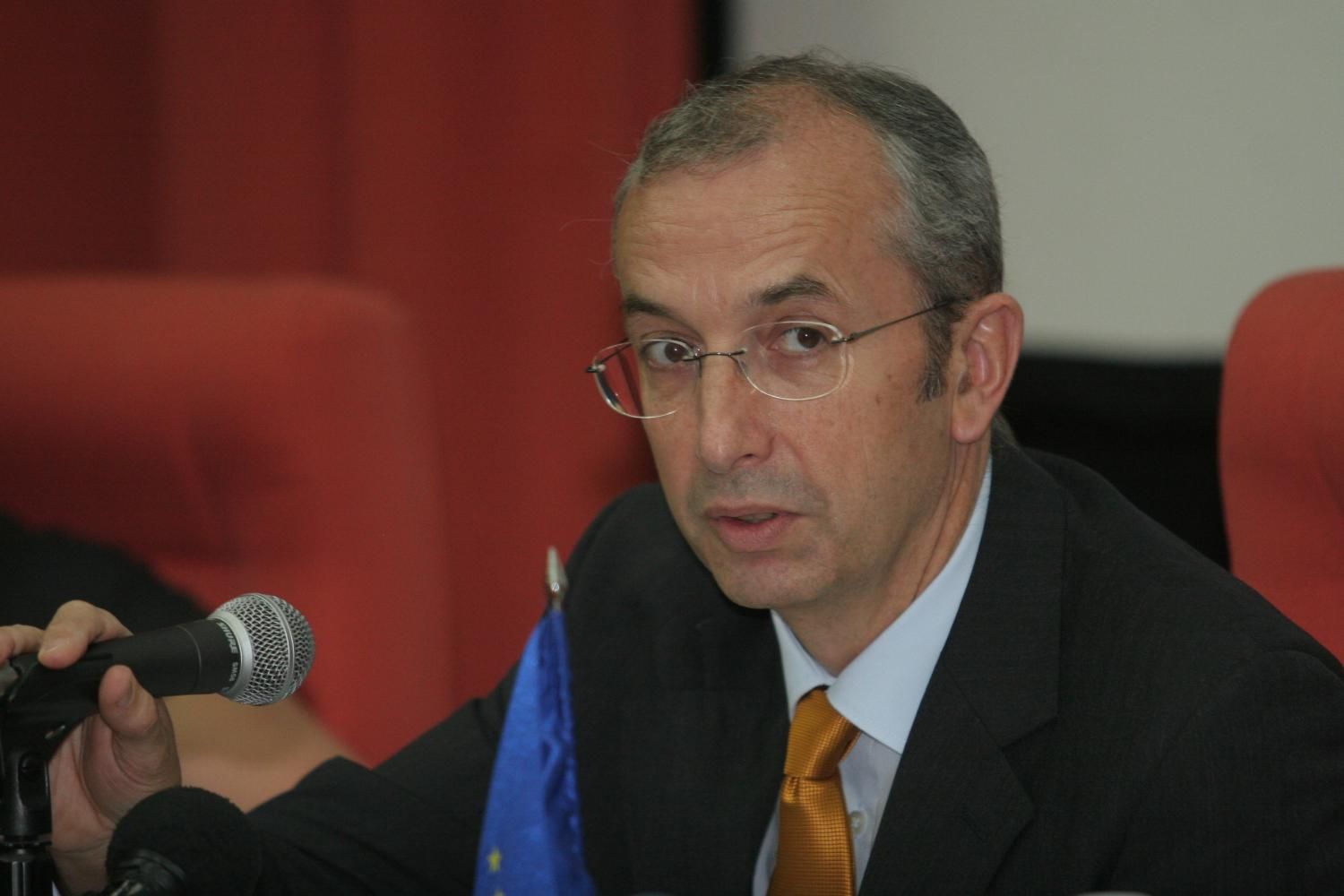European Commissioner Johannes Hahn and EU High Representative Federica Mogherini made it very clear that closing borders is not the solution in dealing with refugee crisis, said Head of EU Delegation to Serbia Michael Davenport.
At the presentation of brochure “Negotiating Chapters – 35 Steps Towards the EU”, held at National Library of Serbia, Ambassador Davenport said that Hahn and Mogherini were in close contact with Prime Ministers of Serbia and Croatia, Aleksandar Vucic and Zoran Milanovic.
“It is clear that closing borders is not a solution in this situation,” Davenport said and added that borders must be open for traffic. “Unfortunately, economic consequences due to delay on borders have broader effect and it are not contributing to our goals in Europe and in this region in particular.”
Davenport reminded that Serbia faced huge migrant inflow with nearly 170,000 of refugees passing through Serbian territory. Serbia responded to this challenge with dignity and solidarity, he said and added that EU would continue to support it in that process. The Union set aside EUR17 million to support efforts of Serbia and Macedonia in that process, Davenport said.
Ambassador Davenport told press at the National Library of Serbia that he hoped European Commissioner Johannes Hahn would reiterate commitment to opening of negotiating chapters by the end of this year. “I am convinced that he would reiterate European Commission’s commitment to give an early recommendation to opening of first chapters by the end of 2015.” Davenport said.
Head of Serbian EU Negotiating Team Tanja Miscevic said that Serbia tried to handle the border problem with Croatia in a European way.
“We haven’t made a single wrong step. We consulted Brussels on every issue,” said Miscevic at the National Library of Serbia. “Closing borders does not provide a solution to current situation. It does not solve migrant problem, but breaches international agreements, Stabilisation and Association Agreement in particular,” said Miscevic and added that Serbia tried to solve the problem through dialogue “through direct phone call between Prime Ministers. Then, we tried to warn Brussels about the possible consequences of such a behaviour via letters by Minister Ljaljic and Prime Minister Vucic and a constant contact with EU Delegation in Serbia.”




